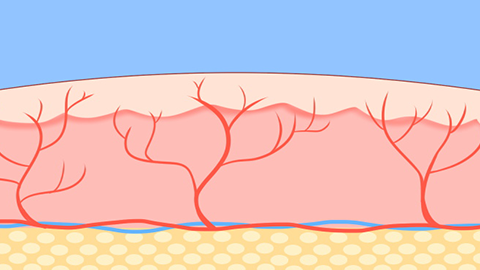Is capillary dilation hereditary?
Generally, whether telangiectasia (dilated capillaries) is hereditary depends on its specific type. Some types of telangiectasia are genetically related and may be passed on to offspring, while telangiectasia caused by acquired factors typically does not have hereditary characteristics. Detailed analysis is as follows:

If the telangiectasia is associated with a hereditary disease, such as hereditary hemorrhagic telangiectasia (HHT), this condition is caused by genetic abnormalities and has a clear hereditary tendency. Patients often exhibit dilated capillaries on areas such as the face, oral mucosa, and limbs, and may experience symptoms like nosebleeds or gastrointestinal bleeding. Multiple family members are often affected, and there is a high probability of passing the condition to the next generation.
When telangiectasia results from acquired factors, such as prolonged exposure to ultraviolet radiation, temperature extremes, frequent use of irritating skincare products, hormonal changes, or chronic inflammation, it is unrelated to heredity. These cases mainly result from damage to blood vessels caused by external factors or changes in physical condition.
In daily skincare, individuals with a hereditary predisposition should take preventive measures earlier, such as practicing sun protection from childhood and avoiding prolonged sun exposure; choosing mild, non-irritating skincare products to minimize vascular damage; and avoiding frequent temperature changes that may irritate the skin.





